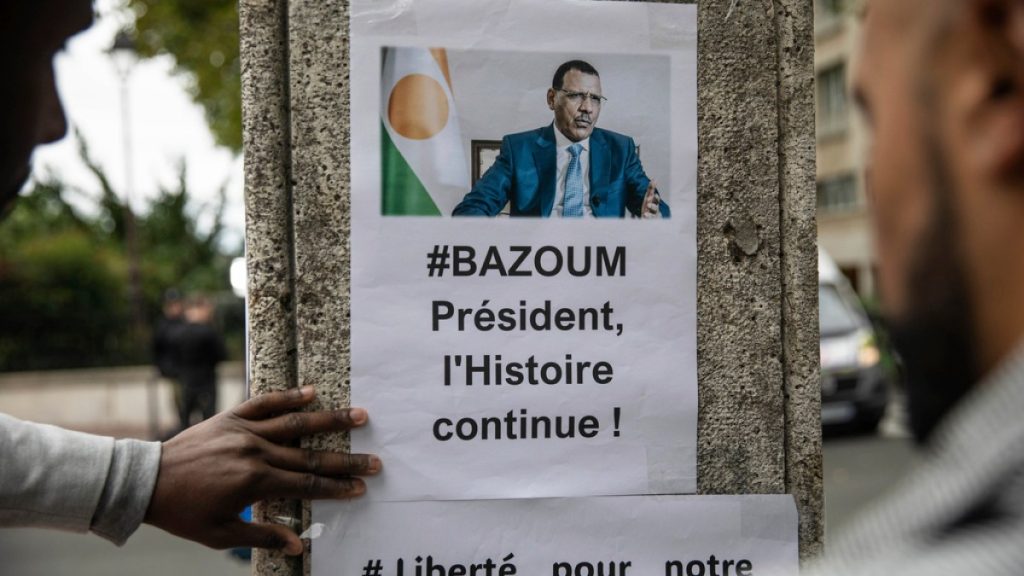The decision by the top court in Niger to lift the immunity of the country’s deposed president, Mohamed Bazoum, has opened the door for the military government to prosecute the democratically elected leader for alleged “high treason.” Bazoum was overthrown by mutinous soldiers nearly a year ago and has been under house arrest with his family. The military authorities have accused Bazoum of undermining national security and attempting to secure Western support during the July 2023 coup through phone calls with French President Emmanuel Macron and US Secretary of State Antony Blinken.
Abdou Dan Galadima, president of the State Court, the country’s highest legal authority created by the military government, announced the decision to lift Bazoum’s immunity. The court proceedings regarding Bazoum’s alleged offenses have been postponed twice, with his lawyers citing obstacles to his right to a defense. Human Rights Watch has raised concerns about serious irregularities in the hearing, including violations of Bazoum’s rights to present evidence, communicate with his legal counsel, and be heard before an independent court.
In late 2023, the highest court of the West African regional bloc ECOWAS ruled that Bazoum and his family were arbitrarily detained and called for his release and restoration to office. Niger withdrew from the grouping a month later. Despite these calls for his release, the military government in Niger pressed on with its intention to prosecute Bazoum for high treason. After the court hearing, one of Bazoum’s lawyers stated that the defense team would make a statement shortly, indicating their intention to continue defending the deposed president.
Before being removed from power, Niger was a key security partner for Western countries in the Sahel region, which has been plagued by violence from armed groups affiliated with ISIL and al-Qaeda. Bazoum’s election in 2021 marked the country’s first peaceful transfer of power since independence in 1960, and he was praised for his democratic credentials. However, since the coup, the military government has expelled French military forces from the country and asked US troops to leave, leading to their official withdrawal.
The situation in Niger highlights the fragile nature of democracy in the region and the challenges faced by leaders who come to power through democratic means. The case of Mohamed Bazoum raises concerns about the potential misuse of legal processes by military governments to silence opposition and punish political adversaries. The international community will be closely watching the developments in Niger and monitoring the military government’s actions to ensure due process and respect for human rights in the prosecution of the former president.


